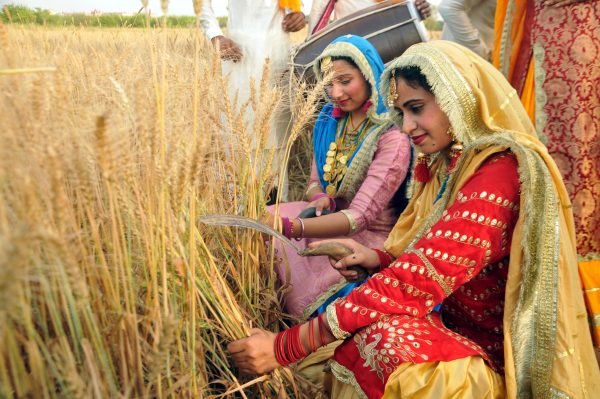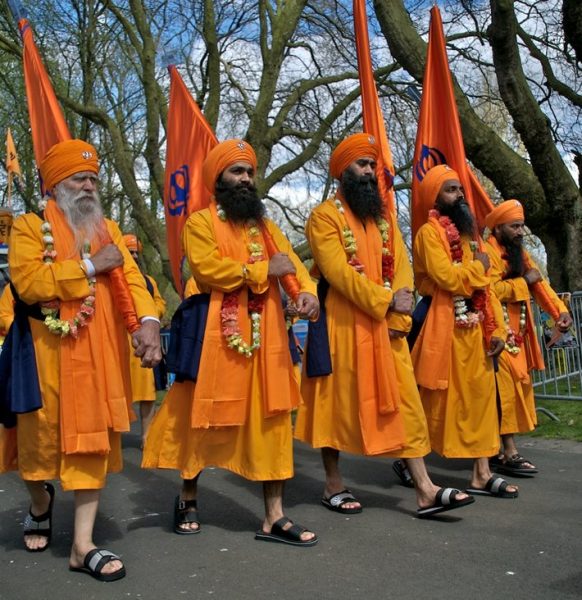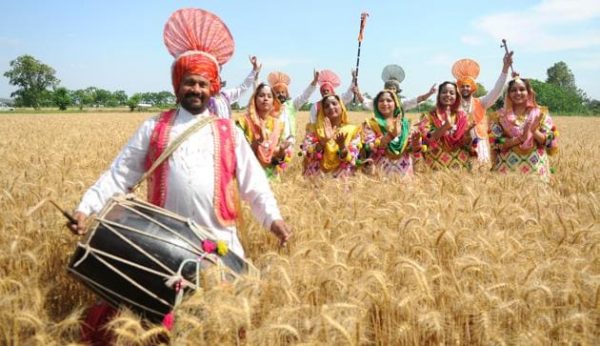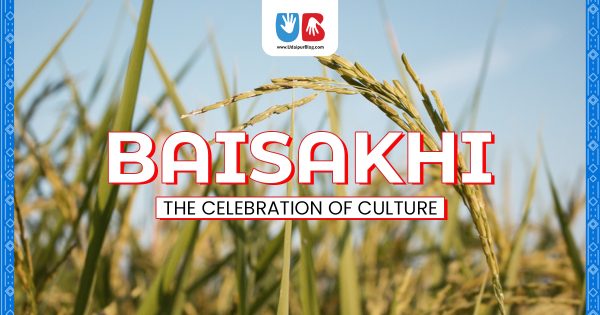India, the land of festivals and culture, embraces a lot of celebrations across different cultures as one. Baisakhi or Vaisakhi, is the foremost festival of celebrations for the Sikh community.
Celebrated every year, either on the 13th or 14th of April, Baisakhi marks a lot of accomplishments and new beginnings for the Sikhs as well as other communities as well. Baisakhi symbolizes the Sikh New Year. This is the sign of the start of the harvest season. This day also celebrates the establishment of the ‘KHALSA PANTH’ a community of Sikhs who adhered to the Principles of Sikhism.
So, this year let us read 5 facts about Baisakhi we didn’t know!

1. EMERGENCE OF THE WORD ‘BAISAKHI’
The second month of the Nanakshahi Calendar (Sikh calendar) called ‘BAISAKH’ meaning the harvest for New Year for the Sikh community is where the word ‘Baisakhi’ comes from.
2. BIRTH OF ‘KHALSA PANTH’
Khalsa refers to ‘being pure’. The tenth Guru, Guru Gobind Singh started this tradition of Khalsa to protect and honor innocent followers from religious oppression. It formulated new institutions and replaced the old ‘Guru’ system.’ The Khalsa Sikhs are given the titles of ‘Kaur’ meaning Princess and ‘Singh’ meaning Lion for females and males.
This started when the ninth Guru of the Sikhs and Guru Gobind Singh’s father were killed for not adopting Islam under the reign of Aurangzeb. Later his sons were also executed for doing the same. On April 1966, the Sikhs were asked to gather at Shri Anandpur Sahib by Guru Gobind Singh. And on the edge of a tent-pitched hill, he asked to step- forward someone, who was willing to sacrifice their head. He asked this five times, and every time, came out with a sword full of blood and the heads. They were called the ‘Panj Pyaare’ – Bhai Sahib Singh, Bhai Dharam Singh, Bhai Himmat Singh, Bhai Mohkam Singh, and Bhai Daya Singh.
Guru Gobind Singh prepared ‘Amrit’ consisting of water and sugar in an iron bowl with the recitation of Gurbani to be directed to the ‘Panj Pyaare’ while quoting from the Adi Granth. This marked him as the sixth Khalsa. And he became Guru Gobind Singh from Guru Gobind Rai.

3. ESTABLISHMENT OF THE 5 Ks OF KHALSA
Guru Gobind Singh Ji established the 5Ks of Khalsa which included-
KESH- uncut hair
KANGHA- a wooden comb
KARA- iron/steel bracelet to be worn on the wrist.
KIRPAN- a sword
KACHERA- short breeches.
4. FOUNDATION OF THE ARYA SAMAJ
In 1875 Arya Samaj was founded by Swami Dayanand on the same day as Baisakhi which made this day embracing for the Hindu Community as well.
5. CELEBRATING BAISAKHI

Baisakhi is celebrated in the most fun and colorful way mostly in the Northern State of Punjab.
This celebration is initiated by dipping in lakes and ponds early in the morning, wearing new clothes, and joining the marches that go around the town singing religious songs, called the Nagar Kirtans. This is led by 5 Sikhs carrying their flags, ‘Nishan Sahib’ and the holy book ‘Guru Granth Sahib’.
The Sikhs also follow a tradition known as ‘Awat Pauni’ where the people gather around the wheat grown in winter for harvesting. They perform the traditional dance forms- ‘Bhangra’ and ‘Gidda’. The whole town is lit up with rangolis everywhere depicting their joy and pride towards the culture.
While, Baisakhi is a very important day for the embarkment of a journey for the Sikhs, as we read earlier about how India is the land of many cultures, April 14th is not only special for the Sikhs but a number of other communities as well.
The Hindu Goddess Jwalamukhi is also worshipped in Himachal Pradesh, and Sun God- Surya in Bihar with celebrations outside India as well.
Various New Years such as – Bohag Bihu (Assamese New Year), Poil Boshak (Bengali New Year), and Puthandu (Tamil New Year). It is also believed that thousands of years of Goddess Ganga descended on Earth, and for that reason, this day is extra special as well!



India truly is many worlds in one. Beautiful article.